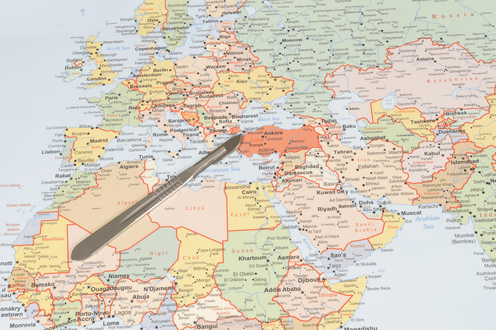
Medical tourism is the practice of travelling outside one’s home country for medical or surgical treatment. It includes dental tourism, but not wellness tourism, which usually refers to visiting spas, homeopathy treatments or traditional healing. It is a rapidly growing industry, especially in Southeast Asia, which is seeing a growth in international tourist arrivals from Australia.
An ABC report suggested more than 15,000 Australians travel abroad each year for cosmetic surgery alone. Australians are spending more than A$300 million on medical treatment overseas every year. These are probably significant underestimates, since data is not collected on outgoing travellers for the purpose of medical tourism.
The Southeast Asian medical tourism industry markets cosmetic surgery, dental procedures (including implants, dentures, crowns and whitening) and other surgery such as eye, cardiac, orthopaedic and gastric bypass/banding surgery. There is also some promotion of fertility treatments, wellness checks and other medical and surgical procedures.
Even local health insurance companies, such as NIB, are turning to the promotion of medical tourism packages for treatments such as cosmetic surgery and dental care.
What are the risks?
Even in the best of care, there is a small incidence of complications from the anaesthetic or from surgery itself. Patients need close monitoring and follow-up after the operation to minimise the consequences of such complications.
Post-operative infection is a common complication and an ever-present risk. Bringing resistant strains of bacteria back home may also be a concern.
There are also general travel health risks of the destination. These should be addressed during a pre-travel consultation with a general practitioner (GP) or travel clinic around six to eight weeks prior to departure.
Existing medical conditions need to be stabilised well ahead of surgery, but may still produce a higher incidence of complications.
After surgery, most people take some time, often weeks, to recuperate. It is hard to do this while packing for and travelling on a plane. This can put unnecessary stress on wounds and may delay healing. It may also be difficult to move around after surgery. Already present post-surgery risks, including deep venous thrombosis and thromboembolism (blood clots), increase.
Another potential problem involves residual air or gas trapped in the surgical wound expanding in the lower-pressure environment of an aircraft at cruising altitude. Most airlines have specific exclusion periods following surgery and require medical clearances for travellers during the immediate post-operative period.
For example, major airlines do not allow travel within 24 hours following superficial plastic surgery and require medical clearances one to four days after plastic surgery. Surgery within the eye, with the potential for air to be trapped, has a longer exclusion period from flying of one week. Medical clearances are needed from eight to 42 days after intra-ocular surgery where air may be trapped.
Any surgical procedure should not be taken lightly, because of the small risk of complications. To undergo surgery away from local family support, GP follow-up and medico-legal safety nets adds another layer of risk, as do the additional travel-associated health risks.
However, the medical tourism industry, including hospitals and their medical staff, is attuned to the need to be able to market an international standard for quality of care. A number of accrediting agencies now ensure minimum standards for people travelling from their home countries.
The United States has the Joint Commission International and the United Kingdom the Quality Healthcare Advice Trent Accreditation. In Australia, health facilities are accredited through the Australian Council on Healthcare Standards (ACHS), which does offshore accreditation on request through ACHS International.
Patients falling through the follow-up cracks between having their surgery abroad and coming back home is a concern. This is particularly the case if they have a complication needing further surgery back home.
Are all countries capable of performing complex surgeries?
Surgeons usually specialise in some types of surgeries. Hospitals may also specialise in hosting some types of surgeries that they market to potential medical tourists.
Some experimental or non-approved treatments, such as experimental stem cell or cancer treatments, may only be available overseas. However, meeting training and experience standards to perform particular types of surgical procedures is pretty much universal in countries that have a process of accreditation of hospitals and medical specialities.
We don’t know whether medical tourists are preferentially seeking out accredited hospitals; however, there are 42 Joint Commission International accredited hospitals in Thailand alone.
Of course, a significant driver of medical tourism is the ability to obtain access to cheaper medical care. The ABC reports a tummy tuck costs A$30,000 here and only $8,000 in Thailand.
If seeking surgery abroad, key questions to ask include:
-
Is the hospital/medical/dental facility accredited?
-
Are the medical and health staff appropriately qualified and credentialled?
-
What are the statistics on complications for that procedure at the hospital? How does that stack up against those here?
-
Is there continuity of care throughout the pre- and post-surgical treatment phases as well as during the surgery itself?
-
Who are you dealing with? Who is bankrolling the medical facility? Can you visit the hospital, tour the facilities and meet the staff beforehand, even virtually?
In addition, take steps to minimise your general travel health risks. Seek advice from your doctor or clinic at least six to eight weeks before travel abroad.
Peter Leggat does not work for, consult, own shares in or receive funding from any company or organization that would benefit from this article, and has disclosed no relevant affiliations beyond the academic appointment above.
